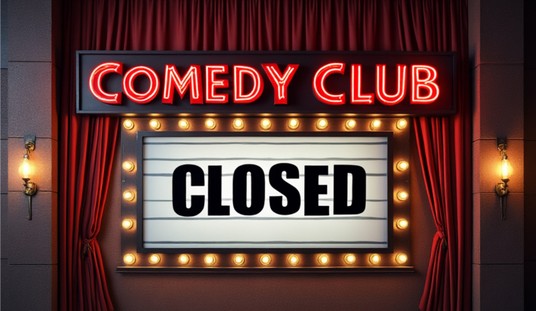I know that as a conservative-Christian-libertarian-leaning-Republican I’m supposed to pick a side in this Kim Davis controversy. These days, if you’re not 110% in one camp or the other, you’re a traitor and a sell-out. Nuance is for losers. Nevertheless, I’m deeply conflicted about the issue of the county clerk who was hauled off to jail for refusing to sign same sex marriage certificates, and I know I’m not the only one. Although I’ve heard from plenty of people about why one side or the other is wrong, I’m still not sure.
On the one hand, I agree with Davis on principle. As a Christian, I wouldn’t want my name on a form declaring the legitimacy of a union that is outside the bounds of the biblical definition of marriage. On the other hand, the Bible teaches that Christians are to obey the governing authorities unless they are commanded to do something that violates God’s commands. In between those two points is a gray area where there is room for Christians to come to different conclusions about whether putting one’s name on a marriage license would constitute an endorsement of the marriage. Even among individuals of other faith traditions (or no faith at all) there is disagreement on this issue; Americans from all walks of life are conflicted about it. And that is why everything about this ongoing conflict is terrible. Every. Last. Thing. Here are some of the top contenders for the things I hate the most about it:
Someone in the United States of America actually went to jail because she refused to put her name on a same sex marriage certificate.
I cannot wrap my mind around this. Weren’t we told just a few short years ago that same sex marriage wouldn’t affect those who didn’t agree with it? That it was all about more freedom for everyone and no one’s rights would be trampled in the process? Somehow, seemingly overnight, those benign-sounding overtures morphed into “Shut up, bigots, no one cares what you think anymore.” While it’s true that Kim Davis, a recent convert to Christianity, is not the standard-bearer anyone would have chosen to lead the battle for religious liberty, nevertheless, she was the first government official to run headlong into the new marriage laws. For better or worse, she’s the face of the conscientious objectors right now. Whatever you think of her personal story, the First Amendment’s guarantee of freedom of religion did not come with a morality clause, nor is there a non-hypocrisy requirement. And lest there is some confusion here, we don’t crowdsource religious beliefs (which are by nature deeply personal) to determine whether or not they are worthy of First Amendment protections.
We can’t have a rational discussion about accommodating religious liberties.
The left is hell bent on making sure every last person in America not only tolerates gay marriage, but also participates in — and celebrates — the unions. Sadly, only a handful of politicians have demonstrated even a tiny modicum of leadership on this important issue. Most are more worried about turning out voters in the next election than the injustice of turning government officials out of their jobs.
This issue is really not all that complicated and could be resolved quickly if only our lawmakers could find within themselves an ounce or two of political courage. Eugene Volokh recently gave some examples of religious beliefs being (rather routinely) accommodated in the workplace. He wrote:
Under Title VII of the federal Civil Rights Act, both public and private employers have a duty to exempt religious employees from generally applicable work rules, so long as this won’t create an “undue hardship,” meaning more than a modest cost, on the employer. If the employees can be accommodated in a way that would let the job still get done without much burden on the employer, coworkers, and customers — for instance by switching the employee’s assignments with another employee or by otherwise slightly changing the job duties — then the employer must accommodate them.
Kentucky Governor Beshear, who ordered clerks to begin issuing marriage licenses to same sex couples, admitted that the “overwhelming majority of county clerks” are “iss[uing] marriage licenses regardless of gender” and only “two or three” (of 120) were “refusing” to issue such licenses due to their “personal beliefs” and “personal feelings.”
It’s entirely possible for both religious beliefs to be accommodated and for same sex couples to receive the marriage licenses they desire. That’s exactly what’s happening in N. Carolina, where lawmakers pre-empted a religious liberty war by allowing exemptions for conscientious objectors of same sex marriage while at the same time ensuring everyone gets their licenses. But we can’t have nice things like that because a) the left will allow no dissent and b) our lawmakers are more worried about their political careers than doing the right thing.
The Supreme Court’s overreach is putting people in untenable positions.
Some really decent people who work in government jobs are going to have only three choices when faced with these decisions: 1) quit their jobs 2) violate their consciences 3) face legal action/jail time. Those are all lousy options. It matters not whether you believe they are wrong to object to putting their names on a form; for some individuals, this is a deeply personal matter of religious conviction and they’re not going to be mocked or threatened into changing their minds. Unless there are actions taken to protect the religious liberties of these individuals we are likely to see what will amount to an exodus of Christians from government offices. Who will replace them? The answer is pretty predictable if there is to be a reverse religious test for these jobs, isn’t it? While some people think it’s a great thing that all the “religious bigots” are going to be purged from government, understand that these are also the people whose faith compels them to tell the truth, administer justice fairly, and demonstrate a solid work ethic. The disagreement is on this one issue and it will be a great loss to many communities when these principled leaders depart their government jobs (whether willingly or in handcuffs).
What would I do if I were in Davis’ position? To be honest, it’s not a settled matter in my heart. I hope and pray that if there comes a day when I’m faced with the terrible choice of whether to obey God or the government I will have the courage to do the right thing. It’s very possible that we’re turning into the kind of nation where people routinely have to make those decisions and I find that deeply troubling and terribly unsettling.
Part 2: 3 Things Every Christian Should Hate About the Kentucky Marriage License Spectacle











Join the conversation as a VIP Member